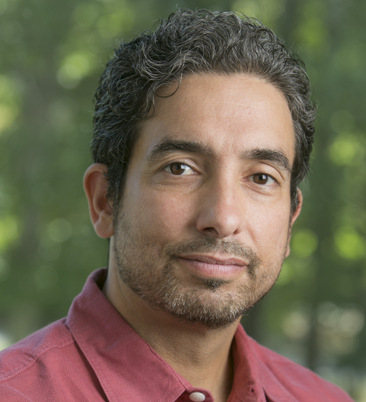Scholars: TikTok Ban Not a Panacea But Could Prompt Important Data Privacy Conversations

Phil Napoli, public policy professor
On major concerns driving consideration of a TikTok ban
“There are intersecting concerns. One is obviously around user data privacy and security and the way user data could be used to track users who are important or influential, journalists for example, government officials for example, so there’s that part.”
“There’s also the way that can connect to issues around our longstanding concerns, at least post-2016 concerns, around foreign influence operations and the way digital platforms, social media platforms, can be used to engage in very data-driven, very targeted political influence operations.”
“Obviously, the highest profile example of this so far is what we have seen Russia do in relation to the 2016 election. But those sorts of actions have been ongoing and we saw continued work in that space by other countries as well, in the most recent midterms.”
On how to effectively regulate social media apps and data collection
“In the European Union, there’s much more expansive privacy protection than we see here. In the U.S., it’s this very reactionary approach. Our model of digital platform regulation has been, first and foremost, to do nothing. The politics of platform regulation have been so contentious, partisanship has been a key issue that has led to very little action even in the wake of what we’ve seen in 2016 and 2020. Even some very basic protections that were directed at foreign influence on digital platforms, like the Honest Ads Act, which would have required some disclosures on who is sponsoring actual advertisements, things like that, went nowhere.”
“This potential move is reactionary. It would be nice if guidelines and restrictions were in place before these platforms had reached this incredible degree of prominence. Then we’re to that adage: “Can you put the horse back in the barn? Can you put the genie back in the bottle?”
On how a broad, sweeping national TikTok ban would work
“For it to be a bona fide, blanket ban – and different from what we’re seeing in states where the bans are focused on government devices – this would have to be a very central enforcement process.”
On rare bipartisan support for a proposed ban
“This is what’s interesting about this particular context – it’s actually more bipartisan than most digital platform issues that have arisen in the past.”
“Maybe this is indicative of a larger trend. Privacy is one of those areas where there has always been some degree of bipartisanship. If you think about the related realm of foreign political influence … that has been a very partisan issue. There has not been bipartisan support for trying to limit foreign influence operations. So to the extent that this is part of the expressed concerns around TikTok, this is a change, an important change. It may lead to some actual action on this front. It may lead to action that ultimately we decide is kind of heavy-handed, but even something heavy-handed would be a huge change from the inaction we’ve seen across the spectrum of digital platform issues over the past few years.”
On whether universities and other institutions should take social media use more seriously
“It would be great if this sort of bipartisan concern that has zeroed in around TikTok were to genuinely prompt, finally, a more robust conversation about the nature of data gathering and the uses of this data that all these commercial platforms engage in. If institutions really started to ask themselves what are the full range of vulnerabilities they are subjecting themselves to when they allow their students their employees and students access to these platforms on their networks? What are the vulnerabilities that could be arising there?
On whether Americans understand what their devices reveal
“When people research how rigorously users inform themselves about the terms and conditions, about the apps or the devices they use, the answer, probably not surprisingly, is the norm is not to really be that well informed. Do these providers oftentimes make it difficult, and require you to do a lot of clicking through to a lot of places, to learn exactly what you’re agreeing to when you download an app, for example? Yes. It requires real work to be a well-informed consumer.”
Robyn Caplan, visiting public policy professor
On data privacy community’s concerns over potential TikTok ban
“The general consensus from what I’ve seen in the privacy community is that they reflect geopolitical tensions more than necessarily privacy risk.”
On why people should care about commercial surveillance
“This is a really important question. We need to think about the demographic of users that are on the TikTok app. These are mostly a younger generation of users, they’re a coveted generation of users. They’re ones that are concerned about commercial surveillance more generally. They may not have those kinds of feelings of trust around commercial surveillance towards U.S. apps either. So to the degree that TikTok can start a broader conversation about the nature of commercial surveillance and how we can be regulating that, I think this is an important step. But taking an action on TikTok alone does little to address the privacy and surveillance concerns coming from those major U.S. social media apps.”
“One thing that really concerns me with this in particular, if we’re not addressing commercial surveillance at large, is that both Meta and Alphabet have developed competitors to TikTok, perhaps in preparation for this, perhaps because this is a very coveted user group that TikTok has cornered. Without effective U.S. privacy laws that impact similar data collection practices among U.S. companies, banning TikTok writ large is really not going to do much to assuage concerns about surveillance, particularly among this age group.”
On Tik Tok’s staying power
“The rate of adoption for Tik Tok has far exceeded most other apps. They crossed over a billion downloads last year. They became the most downloaded app within the App Store, surpassing all of the Facebook products. They really do seem to have cornered a particular type of market. They’re a younger generation of users but they don’t seem to be confined to that user group. They’re making pretty significant strides within other age groups as well, like the 30-50 age range.”
“We’ve seen this before, though. We’ve seen this with the apps of the major companies. Instagram was a hugely popular app that has been on the decline for some time. So we don’t really know the future of the popularity of these types of apps.”
On the data we give away every day on social media
“When we carry these phones around with us every single day, we are sharing data about ourselves at every single moment. We are sharing data about who we are with, who we are nearby. We are sharing data about what we are searching for, what we are buying.”
“It’s important to keep this in perspective, that our activities online are one source of data and information that we’re giving these companies. The videos we’re creating, the captions we are using, the tags we are using, the photos we are putting online, but there’s a whole host of other types of data we share on an ongoing basis as we go about our lives.”
On whether a TikTok ban would set a dangerous precedent
“That’s one of my major concerns. TikTok is not the only Chinese app that is popular in the U.S. WeChat is a hugely popular Chinese app. It’s one used by a lot of people who live in North America or Europe to communicate with their family in places like China. That’s a major concern.”
“Shein, as well, which is a fast fashion brand, briefly overtook Amazon in global downloads in 2022. So, there are a lot of other apps we would need to consider if we were making this decision just based on the fact that this company is Chinese owned.”
Participants

Robyn Caplan
Visiting assistant professor at the Sanford School of Public Policy and a founding member of the Platform Governance Research Network. She studies social media and data platform governance and media policy.

Phil Napoli
Professor of public policy at Sanford and director of the DeWitt Wallace Center for Media and Democracy at Duke, where he researches new ideas for social media regulation, news deserts and the contraction of news media.